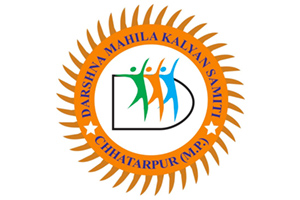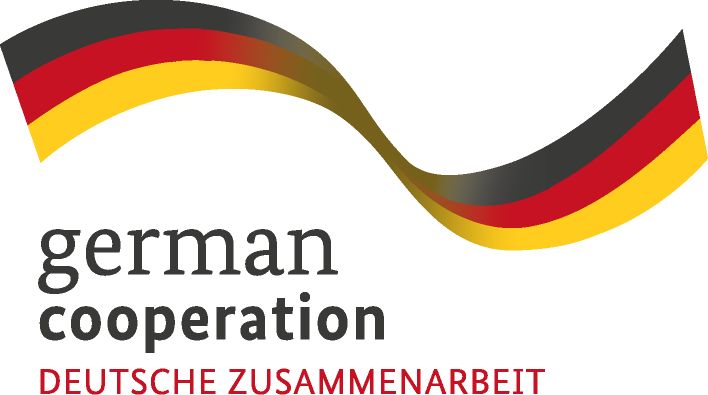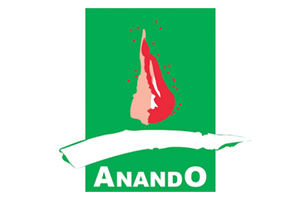Nutrition
Nutrition Smart Villages to secure nutrition in South Asia
Nutrition Smart Village is based on a multisectoral approach to address the underlying causes of malnutrition 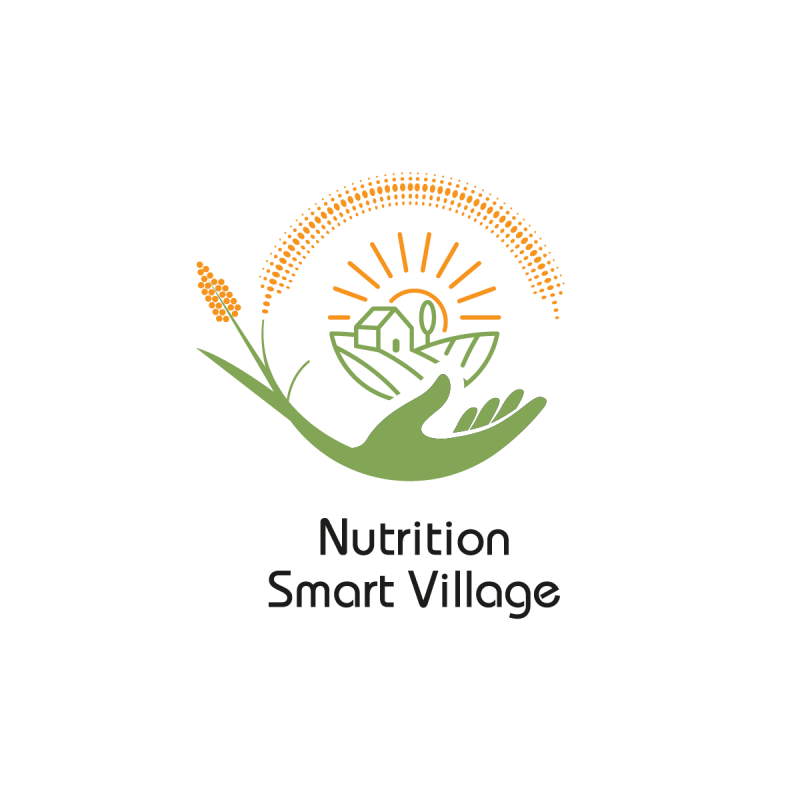
Welthungerhilfe’s ‘Nutrition Smart Village’ (NSV) concept is based on the multisector approach to primarily address the underlying causes of malnutrition and create awareness about the rights and entitlements of the community. The interventions addressing the underlying causes are the ‘nutrition sensitive’ interventions. The underlying causes are the effect of the social and economic milieu of the country. These are referred to as the basic causes and includes quality of human resource, the way economic and social resources are used and the political will of the government. The basic causes can be addressed by ‘building an enabling environment’. Sustainable reduction of long-term chronic malnutrition can be made possible by addressing the majorly the underlying and basic causes.
Towards this, the NSV concept demonstrates interlinkages between agriculture, natural resource management, WASH, education and livelihoods with nutrition. It also focuses on the Right to Food and empowers the community towards accessing entitlements and reducing dependency on markets.
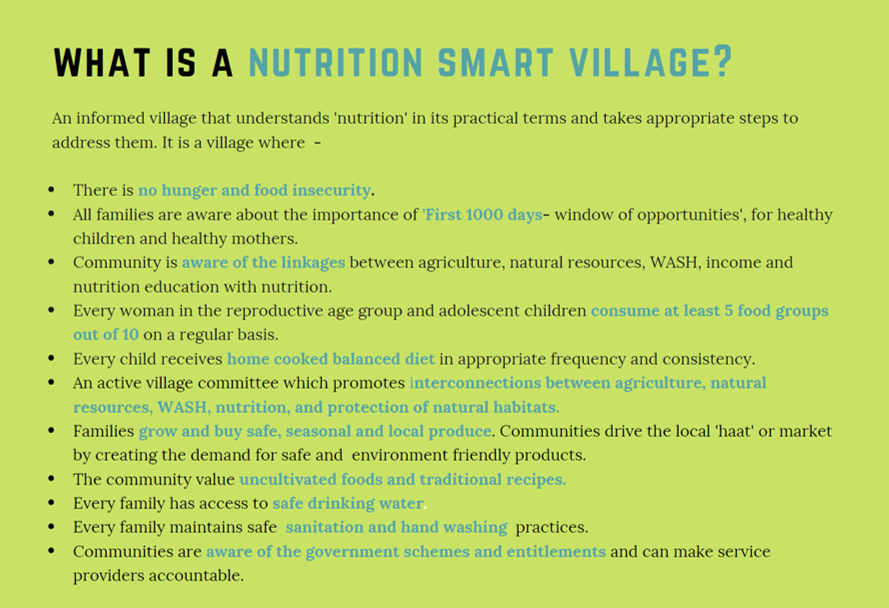
Under the programme, five scalable ‘good practices’ are being contextualized, standardized and demonstrated in 260 villages across Bangladesh, India and Nepal. They are as below:
- Nutrition Camps: This is a more immediate response to the needs of the community. Special 15-days skill training camps, also known as the ‘positive deviance’ camps, for the mothers/ care takers of moderate and severely acute malnourished (SAM) children are organized in villages with high prevalence of undernutrition. During the camps, undernourished children (6-36 months) are screened followed by sensitizing the mothers of malnourished children on infant feeding, hygiene and care practices. SAM are referred to the hospitals / Nutrition rehabilitation Centres (NRC).
- Nutrition gardens and Sustainable Integrated Farming System (SIFS): All families who attended the nutrition camps are also trained on creating their own homestead nutrition gardens. This helps the family to grow and cook diverse food for the malnourished child and other family members. Interested farmers are given hands on training on integrated farming. These farmers became resource/demonstration farmers under the Farmer Field School concept to train other interested farmers in replicating the farm design. SIFS follows the principles of 1) improving cropping sequence 2) multi-storey arrangement and 3) integrating crop, tree, livestock, poultry, aquatic system and bio digestor. The objective of nutrition sensitive agriculture is to help families improve their dietary diversity and reduce market dependence.
- Linking Agriculture and Natural resources with Nutrition (LANN+) PLA meetings cycles: LANN+ is a multi-sectoral approach centred around family nutrition and has an explicit focus on integrating nutrition-sensitive sectoral elements that address underlying and basic causes of malnutrition. A set of 21 meeting cycles using the participatory learning and action (PLA) methodology is promoted to ensure knowledge and behaviour change through actions at the village level. The process also helps the community to plan resources both at family level and commons.
- Nutrition Sensitive Microplanning: Individual and community plans are developed to improve the quality of agriculture, livelihoods, health, nutrition and sanitation services and infrastructure. Families with undernourishment and lesser resources participates in the village development planning for common and shared resources, linking plans with existing government schemes, and budgeting sessions, and volunteers from the community are trained in coordination with local officials on the planning process which includes PRA processes, government schemes and planning procedures.
- Strengthening Institutions: It is the foundation for community mobilization and behaviour change. The project has engaged with existing community-based institutions such as Self-Help Groups, farmers groups and committees mandated under the Government programs, e.g. the Village Health, Nutrition and Sanitation Committees. These groups/committees have been empowered and strengthened to provide leadership, connect the villages with the relevant government departments and plan/monitor the nutrition and WASH interventions.
